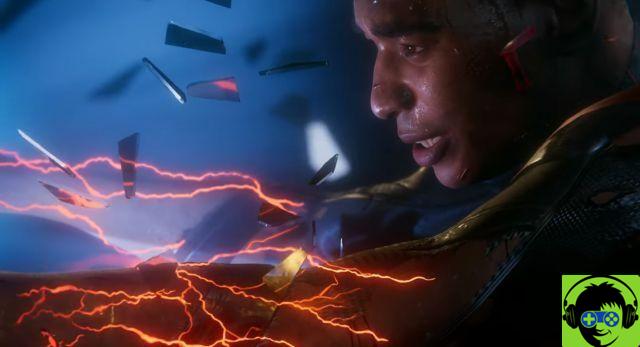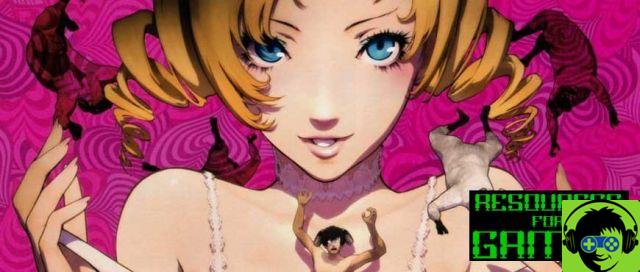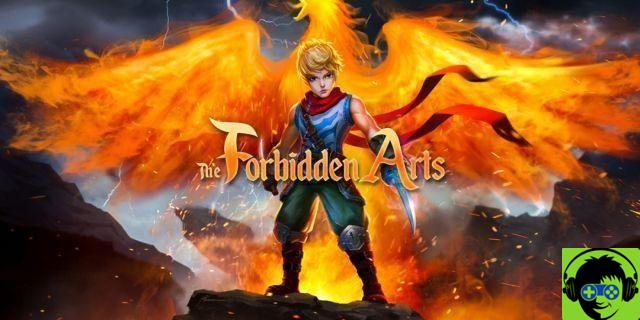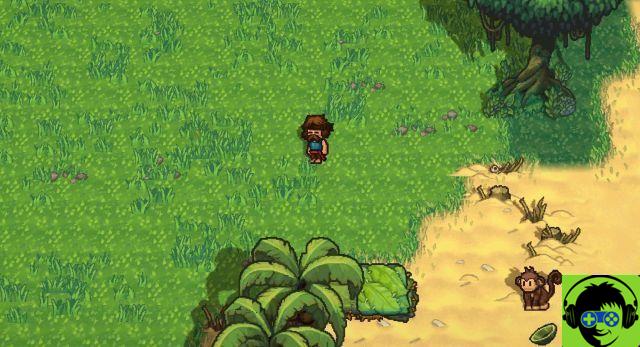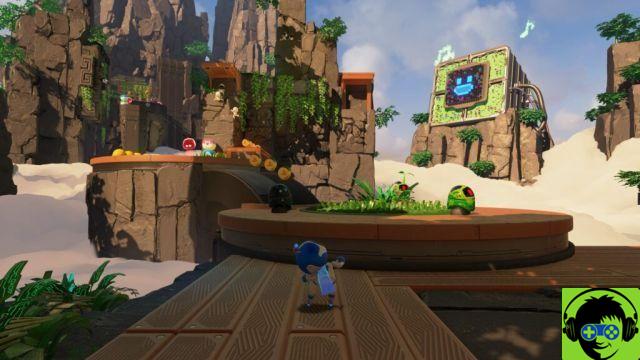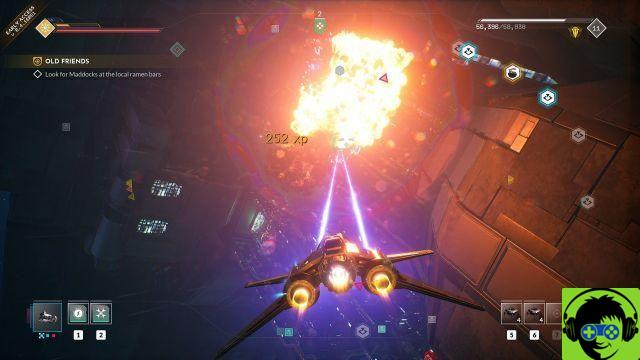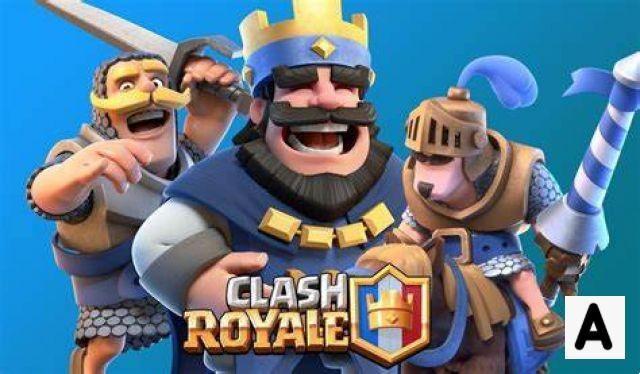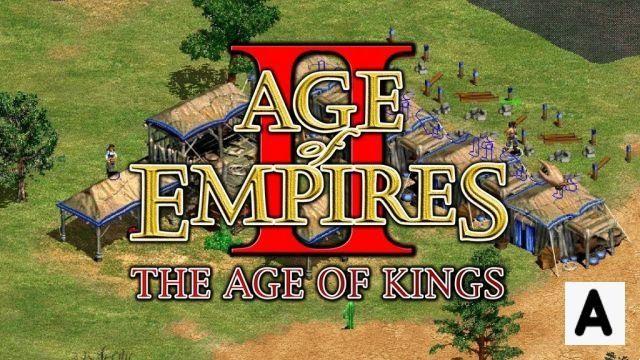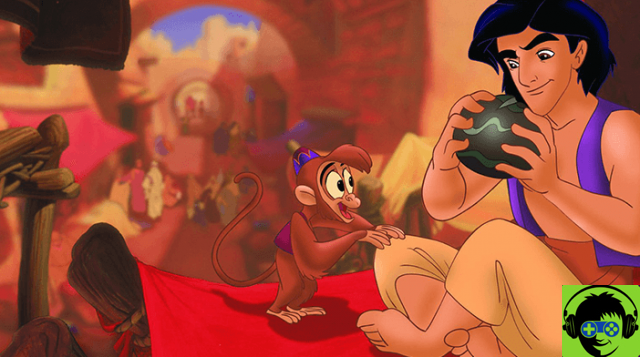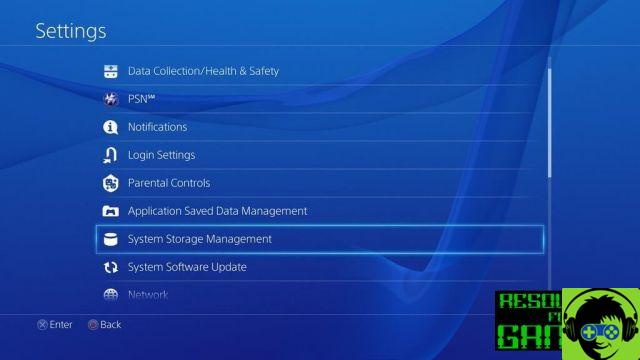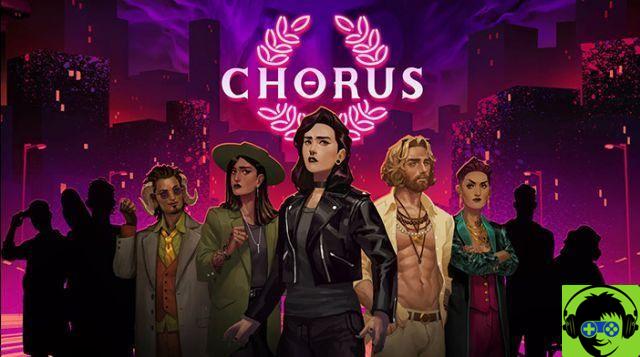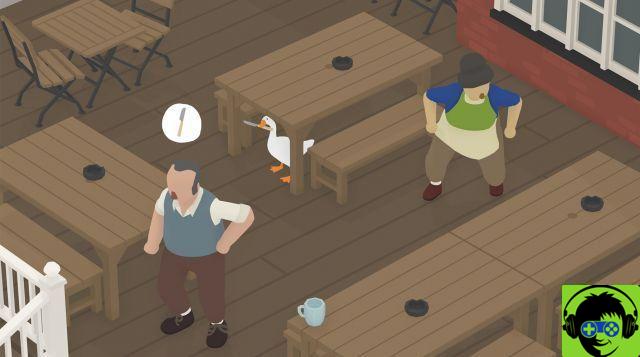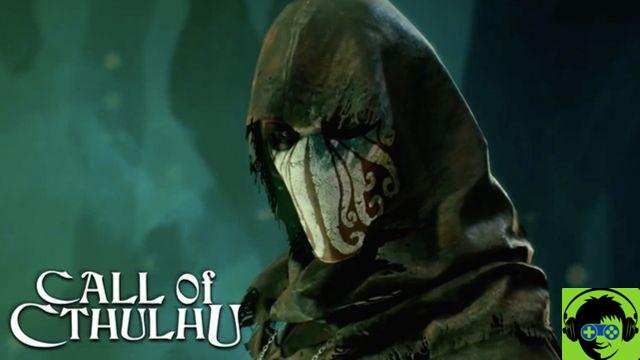
Cthulhu's Recall is a board role-playing game first published by Chaosium in America in 1981.
In this article we will give you an overview of the Role Playing Game and some hints and tips to create your own characters and campaigns. Of course we have no intention to replace the authors of the Game Manual, which remains the unique and indispensable tool to organize your game sessions.
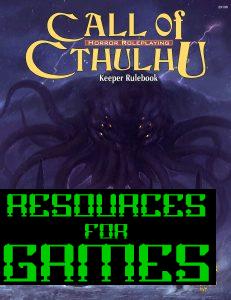
Introduction
Cthulhu's Recall is a role-playing game inspired by the stories of visionary writer Howard Phillips Lovecraft, born in Providence in 1890 and lived in the roaring 20s in the USA. Lovecraft is considered by many to be one of the precursors of Anglo-American science fiction and is recognized as one of the leading writers of horror literature along with Edgar Allan Poe.
Lovecraft's hallucinated mind has generated a distressing and frightening universe. His stories are set in his days, in the USA, mostly in the city he invented by the name of Arkham. Lovecraft's narrative explores the dreamlike dimension of the nightmare and is constantly permeated by the distressing awareness that mankind is nothing compared to the immensity of the cosmos and the mysteries it contains.
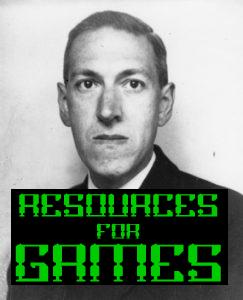
The characters in his stories explore the depths of their personal nightmares that always end up revealing the overwhelming discovery that tremendous monsters await for eons in the depths of space, creatures with powers equal to those of ancient gods and yet stupid, inert or simply careless of human frailty and the mere attempt to observe and understand this truth can only lead the helpless humanity to madness and despair. The central theme of the stories set in the world of Cthulhu's Recall, in fact, is madness. For further information, please refer to the article on the Ambientation.
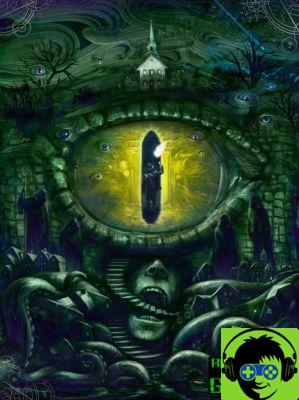
The inclusion of the concept of Mental Health, in fact, is one of the innovations of the game. On the character card is reported the value of SAN (mental health, in fact).
This is a value that can decrease as well as the Hit Points but, while the latter are lost due to physical damage suffered, the Mental Health goes down every time the character is in supernatural or horror situations until he gives in to madness (at that point all that remains is to tear the character card to create a new one).
This system allows to breathe, during the game sessions, that spirit of precariousness and fragility of the human being in front of ancestral creatures, which are so powerful that they become myths for a helpless and defenceless humanity.
There be those who say that things and places have souls, and there be those who say they have not; I dare not say, myself, but I will tell of The Street.
"The Street" - first published in The Wolverine, No. 8 (December 1920)
The characters you can create are ordinary people, often bookworms or occult scholars, generally investigators or researchers who inevitably end up getting caught up in situations that will lead them beyond the limit within which a human mind can remain sane. For more information on characters and rules, please refer to the specific paragraph on Game Mechanics.
Cthulhu's Recall is an investigative game. The adventures take place by interrogating suspects, searching crime scenes or discarding archives and libraries in search of clues, information and arcane truths.
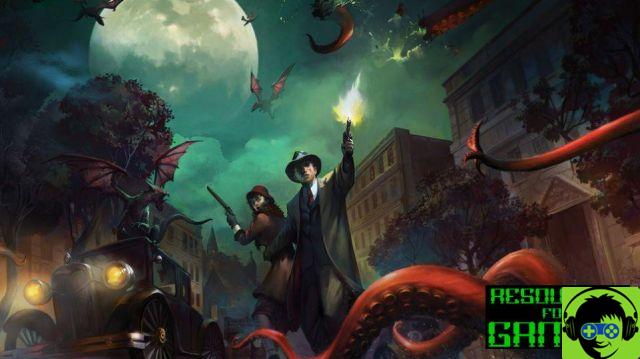
Set in a gloomy America, in the streets of smoky cities where gangsters and ambiguous individuals hide disturbing clues or in the secret meanders of museums and libraries where filthy artifacts and chilling texts written in dead languages reveal dark truths that no one should know.
Horror, mystery and madness are the most common themes in the stories that are told while playing Cthulhu's Calling, and investigation, puzzle solving and exploration are the backbone of any adventure. For more information and tips on adventures and campaigns, please refer to the specific section on Game Cues.
The Game Mechanics
Cthulhu's Recall style of play requires a very simple and smooth rule system, which prefers investigation and research rather than combat or action scenes in general. In this, the Chaosium has created its own game system that manages to hit the target perfectly.
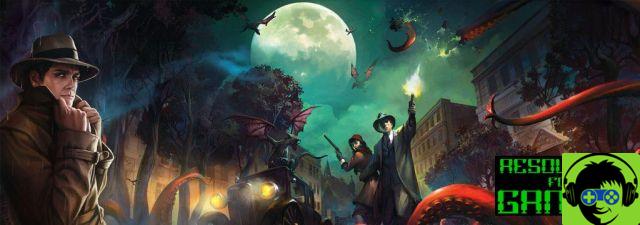
The game is set in our world, so it's easy to see that you can only create trivially human characters.
The character card shows eight characteristics: the classic Strength, Intelligence, Dexterity, Charm and others that we find a bit 'in all role-playing games. The values in the characteristics are obtained by rolling dice, so they are completely random.
In addition to the most common ones, we find the characteristic Education, which represents the degree of education and the baggage of knowledge that the character possesses.
On the card of the character is then reported a dense list of skills: from the classic Hide, Beam, Locate, Listen, etc. ... to countless other skills of knowledge: ranging from Archaeology to Occult, from Anthropology to History or Geology, there is no lack of Languages, Psychology and Psychoanalysis and so on.
The skills in question have a value in percentage points (for dice throwing mechanics see below).
To begin with, the Education score generates the amount that the player can assign to all the character's skills, in short, the value in Education determines how many things the character can do and how much he is able to do them.
In addition, the score of this feature will give us an idea of the title acquired by the character and, as a result, will help us structure his background.
A high value of Education will make us understand that our character is a graduate, maybe he has a chair at the University and we just have to decide in which field he specialized to outline the idea of the character: is he a professor of literature or archaeology? Or is he a brilliant scientist or a luminary of medicine? On the contrary, if the value of Education is low we have to find a justification for which he has never continued his studies: is he perhaps of low social background, poor family, but is he a genius of mechanics and electronics? Or maybe he has chosen a career in law enforcement and then retired to be a private investigator?
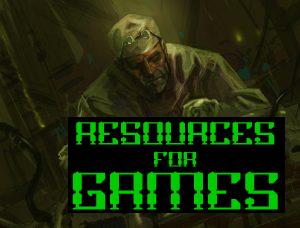
All these cues, which certainly come from the Education feature but are also generated by the other features (a professor will have a low score in Strength and Dexterity while an ignorant character will compensate with physical skills, etc. ...), also help the Master to find interesting ideas for his stories.
In the game system of Cthulhu's Recall there are not, in general, rigid structures that frame the character, in short, there are no "classes" to which Dungeons & Dragons has accustomed us. We can, however, choose the character's Profession, taking cue from the scores we randomly generated by rolling the dice and choosing from a list provided by the manual.
The chosen profession only gives us the list of skills to which we can assign scores, the distribution of which is at our complete discretion. As mentioned above, the amount of points we can distribute is provided by the Education score. The other characteristics (Strength, Dexterity, Constitution, etc...) do not affect the skill scores in any way.
Other "free points" can be awarded to skills that are not included in the list provided by the Profession.
The amount of these free points is determined by a calculation that involves the characteristic Intelligence and with these points you can give some personal touch to the character that characterizes him a bit.
I always recommend justifying the increase in skills that are unrelated to the profession with motivations from the background. This allows you to create a character that is consistent and gives you interesting gameplay ideas. A cop with a passion for the occult? As a boy he witnessed a supernatural event and has always sought the truth by chasing ancient books among junk dealers and lost libraries. Great, let's give points to the occult skill even if it's not on the police profession's list. And why not an archaeologist, university professor who is skilled in the use of the gun and the whip? Surely a background motivation we can find...
Once the scoring operation is finished, we will end up with values that represent the percentage probability of success in a roll of dice: for example, in Sneaking we will have 30% or in Liblioteconomy 40% and so on.
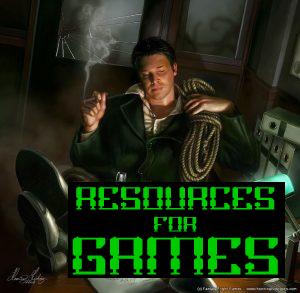
As a final touch-up to the card, we're going to calculate the Hit Points, Magic Points and Mental Health Points based on some very simple operations involving some Characteristics.
Hit Points express the character's level of health. As in most role-playing games, when you suffer injuries you lose Hit Points, when this score reaches zero the character is dead. All too easy.
Magic Points are rarely used when the character wants to perform a supernatural action, such as performing a ritual or casting a spell. These types of actions are very rare in Cthulhu's Calling, and for more information see the article on Setting.
The Mental Health Points (SAN points), the real focus of the game, indicate the mental health of the character.
Mental Health
When the character runs into situations that are unbearable for the human mind, when he sees terrifying scenes or monsters that shouldn't exist, when he is faced with something that goes beyond the safe confines of reason, then he may lose Mental Health Points.
The mood that permeates Lovecraft's stories is always that feeling of the protagonists of being helpless and useless in front of realities much bigger than them, absurd and incomprehensible realities so much that a simple human mind cannot sustain the awareness of such terrible immensity.
Like when you look at an Escher painting and find yourself confused and disoriented or when you watch a documentary that explores the depths of the sea and feel oppressed and terrified by the darkness, the emptiness all around, the infinity whose understanding goes beyond what we can rationalize and understand.
So the characters of Cthulhu's Recall can only go mad reading a tome that reveals immense and overwhelming truths or finding themselves in front of an abysmal, immense and horrible creature and suddenly realize that they are nothing more than a grain of sand compared to the infinite cosmos.
When a character finds himself in a situation that requires it, the Master imposes a SAN shot. If he fails, the character loses Mental Health points in proportion to how destabilizing the situation he is observing is.
If, for example, the character sees a crime scene, a dead body and a lot of blood, he may lose a few points. If, on the other hand, he looks through an artifact that allows him to peer into the deep space at the bottom of which he sees colossal, immortal and obscene creatures moving, he could lose a large amount of points and risk going crazy on the spot.
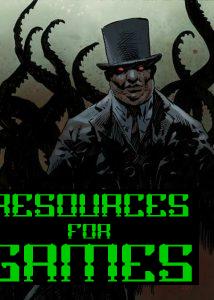
As SAN points drop, the character gets closer and closer to insanity: if he loses a certain amount of points all at once, he is presumed to have suffered considerable trauma and may acquire temporary insanity, paranoia or phobias. There's nothing more fun than playing a character in temporary insanity!
When the value of SAN reaches zero, the character becomes irretrievably crazy and can only be thrown into some madhouse drooling in a corner now prey to his nightmares.
Exactly as if he was dead, a character with zero SAN can no longer be used by the player who will have to create a new one.
Throwing dice and skills
As we have already mentioned, the game system is extremely simple.
When you need to use an ability, you use the percentage dice: if you score less than or equal to the ability in question, the roll is considered successful.
If, for example, a character wants to search a room for clues, the Master will ask him for a hit on the Locate skill.
Let's say the character has a score of 45% in this skill, if he rolls the dice he gets 34 he can be considered a successful roll, so the Master will give the player the hidden clue. In case the roll of the dice gives, for example, 82 then the roll failed and the character will not find the clue he is looking for.
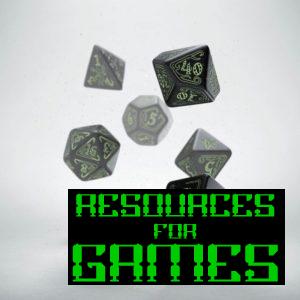
Basically it's all here.
Mental Health is also used in the same way, as explained before it will be necessary to make a roll with the percentage dice using the current value of Mental Health as a parameter, in case of failure the character will lose SAN points (with the consequences described above) and, at the same time, will see reduced the value on which to make the next SAN roll.
This means that the more SAN points the character loses, the harder it will be to maintain mental health as the story goes on.
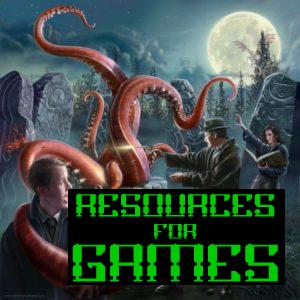
The fight
Combat is also managed with the percentage dice system. The character has a percentage value for his combat skills, which can be Gun Use, Miter Use, Fist, Kick and so on.
These skills are increased during character creation as explained above. A successful shot in the corresponding skill allows you to score an attack, either hand-to-hand or with firearms.
Each weapon inflicts a certain amount of Hit Points on the opponent who, if it is a human being, normally dies or faints easily.
The manual doesn't suggest the use of miniatures or battle grids, primarily because combat tends to be short-lived: a firearm is lethal and the characters are normal humans.
In addition, it is suggested to manage the fight in a narrative way, make it quick and easy, a short interlude in what is the corpus of the Cthulhu's Recall stories: investigation, madness, horror.
Experience
Cthulhu's Call of Cthulhu doesn't include levels or experience score, it doesn't have rules that allow characters to increase their characteristics or abilities until they become superhumans, heroes or immortals as happens in more "classic" role-playing games.
In Cthulhu's Recall there is a skill growth system that allows you to increase the value only of those skills used during the session. You grow only slightly and without the growth really affecting the campaign. The character remains essentially the same throughout the narrative arc in which he is involved.
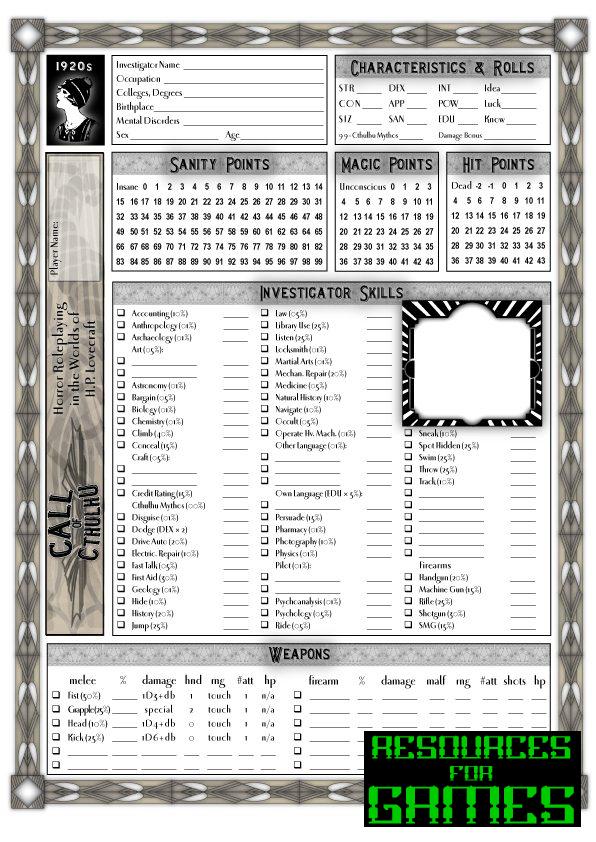
A Cthulhu Call of Cthulhu campaign is prepared by the Master for players rather than characters: they will be the first to enjoy all developments in the story and will play it using more than one character as they fall on the battlefield or go completely crazy.
Setting
The role-playing game [amazon_textlink asin='889994900X' text='Cthulhu's Recall' template='ProductLink' store='frezzanet04-21′ marketplace='IT' link_id='3342b5b9-52a9-11e7-aee9-7948a02d2fe6′] is inspired by the works of writer Howard Phillips Lovecraft.
What can live forever is not dead, | And in strange eons even death can die. (from The City Without Name)
Lovecraft's stories are set in the America of the years between 1920 and 1940 and tell stories of ordinary people who, for some reason, find themselves catapulted into terrible nightmares and end up discovering that the boundaries of the world are not limited to what they have known, seen, always known.
The place where the adventures of Cthulhu's Recall are set is basically the world as we know it. The Game Manual allows you to create stories set in the '20s and '30s and, alternatively, provides the possibility to play in the '90s or around 1890. The Manual provides tables and information to simulate everyday life in all three of these time periods: prices of goods and services, paragraphs describing people's lives, history and world politics in those years.
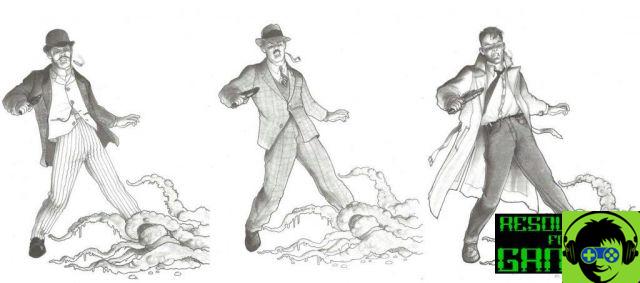
When players create their own characters they have to imagine ordinary people, with peculiar abilities but always inserted in a normal daily life in the historical period chosen among the three proposed by the manual. The typical characters of Cthulhu's Recall are scholars, professors and academics or investigators, such as policemen or private detectives. For more details on character creation, please refer to the article on Game Mechanics.
To the protagonists of Cthulhu's Recall it is revealed that in the most inaccessible places in the universe, from the depths of the most remote space to the dark abysses of the oceans or in the folds of time and space there are things that sleep restlessly, creatures inconceivable to simple human minds, blind and powerful gods who await only the right astral conjunction to wake up and devour the whole of humanity.
The Master creates his adventure and although it is inevitable that a strong supernatural component will end up being predominant at some point in the story, the initial setting will be the world as we know it.
Most of Lovecraft's tales are set in Massachusetts, particularly in the imaginary city of Arkham (have you guessed where DC Comics got the name of Gotham City's famous madhouse from?), but there may be many places to place the game campaigns:
For more ideas about adventures and campaigns, please refer to the Game Cues section.
Myths, gods and monsters
The most interesting aspect of Lovecraft's work is certainly the Myths.
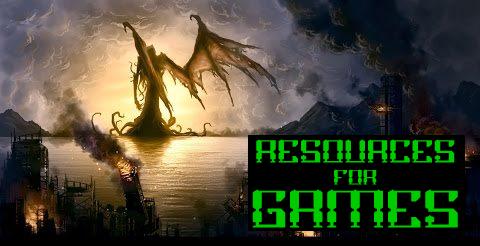
As mentioned above, there are creatures resting in unreachable places and they are immortal beings, whose powers go beyond all imaginable limits, capable of devouring the entire planet if only they should awaken from their millennial torpor.
Humanity is not aware of their existence and humans believe they are masters of their own destiny. However it's not like that at all: the gods imagined by Lovecraft exist since the dawn of time and the whole history of humanity is useless and vain in their eyes, mortal beings are grains of sand that their breath sweeps away in an instant.
They are dormant beings, indifferent to human troubles and outside mortal time, insignificant in comparison to their eternal existence, so much so that human beings do not even imagine that they exist. Yet, their presence has left signs in the history of men: the offspring of immortal beings have often visited ancient civilizations, leaving indelible and terrible signs, and even today the most distorted minds are disposed to worship these creatures by performing all sorts of horror in their name.
But the power of the immortals is real, though hidden, and sometimes rituals and spells work; the threat that a deity will awaken from the abyssal depths becomes real and only the protagonists of our history can prevent the world from being destroyed like an anthill by a capricious child.
I dream of the day when they will come out of the waves and claw in their immense claws the remains of insignificant humanity, worn out by wars... the day when the lands will sink and the dark ocean floor will rise to the surface, in universal pandemonium.
The end is near. I hear a noise at the door, as if an immense slimy body is pressing against you. It won't find me. God, that hand! The window! The window! (from Dagon, 1917)
These creatures are the foundation of every Cthulhu Call of Cthulhu Campaign, and although they can spend numerous game sessions before the tangible signs of their presence can be felt by the characters, their existence conditions the whole story behind the Campaign: for example, the characters may be facing mad cultists or self-styled sorcerers intent on dangerous rituals and human sacrifices. Only at the end of long investigations will they discover that the gods they worship really exist and are about to awaken and destroy humanity.
Cthulhu's Recall Game Manual classifies these immortal beings by dividing them in this way:
Outer Gods, Ancient Gods and Other Gods.
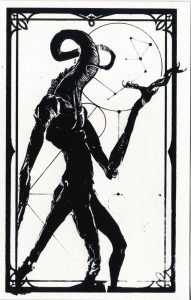
These are alien creatures of incredible power, immortal but often blind or stupid.
They do not care at all about the fate of the wretched humans who find themselves interacting with them only by chance and inevitably are destined to death or madness.
All other creatures described in the Player's Handbook recognize the supremacy of the External Gods and some of them worship them as gods, so great is their power.
They agitate and contort themselves in the meanders of Space and Time and if they show interest in mankind it is only to destroy and devour without purpose, without meaning.
Great Ancients
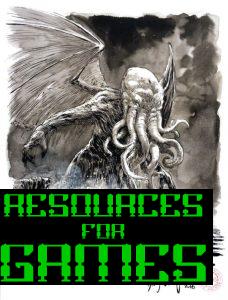
The Great Ancients are monstrous creatures who dwell in the most inaccessible places on Earth. For this reason their presence is more easily perceived by those who seek forbidden knowledge.
Every Great Old One has in his retinue entire seven worshippers who worship these creatures as gods and seek ways to awaken them in order to obtain power and knowledge from them.
This anxiety of crazy priests to get into the good graces of the Great Ancients is totally vain as well as dangerous, but it is a consequence of a revealed truth that the human mind cannot accept: human existence is useless and devoid of any meaning compared to the immense power of a Great Ancient. For this reason cultists cultivate the mad hope that if they find a way to awaken him, the Great Old One will be grateful to him. An expectation that, of course, will never be fulfilled.
The characters in Cthulhu's Call of Cthulhu repeatedly clash with cultist worshipers of the Great Old Ones, and preventing their awakening is a classic campaign theme.
Servant Races and Independent Races
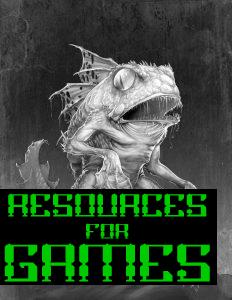
A great number of monsters and creatures are described in the manual, beings whose power is variable. There are (a few) creatures that can be tackled by dangerous characters and beings, capable of taking out a well-armed group in a few rounds.
They are offspring of Great Ancients, alien monsters from other planets or parallel universes, ancestral creatures who inhabited the planet before the oldest times that mankind knows about, and so on.
As mentioned earlier, Cthulhu's Call is a game whose mortality rate is high and often only at the end of a long adventure the characters meet the monsters they've been chasing all along and, if they don't go crazy just looking at them, it's very likely that they'll all be killed.
Forbidden Books
In Lovecraft's tales there are often ancient books, scrolls and tomes containing forbidden knowledge.
The concept of revelation is fundamental in the stories of Cthulhu's Recall, as explained above in fact the characters will inevitably come to know disconcerting truths about the existence of Great Ancients and External Gods, with all the madness that normally follows.
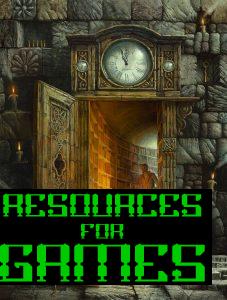
Forbidden texts are a fundamental element in this phase of revelation because thanks to them the characters will be able to increase their knowledge about everything that concerns Myths, to be prepared for what awaits them in continuing their investigations but, on the other hand, to renounce the unconscious innocence that preserved their sanity.A fundamental concept in Cthulhu's Call is this: the more things a character discovers, the more his mind yields to madness.Cosmic truths are more than a human mind can bear before yielding to madness.
The Character Card shows Cthulhu's Myths ability which, like all abilities, is expressed as a percentage. When creating the character, you can assign values to this ability, which starts from scratch. The only way to earn points is for the character to study forbidden books and writing.
The Player's Handbook provides a table in which the various texts are listed and, for each book, it is specified how much to increase the Myths of Cthulhu ability of a character who spends time studying that text.
On the other hand, there is also the amount of Mental Health that the character loses when the terrible truths guarded by the tome he's studying are revealed to him.
A success in a Myths of Cthulhu shoot can make the character recognize the symbols depicted in the bas-relief that he is examining as typical of the cult of a certain Ancient Great or that he remembers having read that the fluorescent fluid like the one he sees scattered on the floor of an ancient temple is attributable to a terrible alien monster, and so on.
The Master may request a shot in the Myths of Cthulhu ability to test if a character has any information about a bizarre or supernatural situation he encounters. Success means that the character has acquired enough knowledge to understand what is happening.
The most representative tome of Cthulhu's RPG is surely the [amazon_textlink asin='8899949069′ text='Necronomicon' template='ProductLink' store='frezzanet04-21′ marketplace='IT' link_id='b7cbdc63-5435-11e7-9ce0-81461f5bdf0d']. Written by the mad Arab Abd al-Azred, the Necronomicon is an intricate and blasphemous encyclopedia that collects all the information about Myths. An entire game campaign can revolve around the research or study of the Necronomicon.
Magic: rituals and spells
Cthulhu's Recall game system allows peronages to learn spells and rituals. That characters use magic, however, should be extremely rare since it goes against the basic principles behind Cthulhu's Call of Cthulhu.
The awareness that there is something beyond the comprehensible must be a slow and traumatic process whereby any contact of the characters with the supernatural must be shocking, destabilizing and mark a turning point in the plot of the campaign.
The setting of Cthulhu's Recall is based on the world as we know it and the newly created characters, at the beginning of the stories that involve them, must think that the supernatural does not exist and that every phenomenon can be explained scientifically.
For this reason it is easy to understand that a character before being able to cast a spell must face a long path of knowledge through which he must first accept the fact that the supernatural exists and that there is nothing good in it; then he must overcome the trauma of understanding that his very existence is senseless compared to the abyssal horrors that dominate the universe, manage not to go completely crazy and survive all the dangers he encounters to reach this awareness. Only then can he afford to learn a spell or ritual.
That's not all.
- Several spells are listed in Cthulhu's Recall Game Manual. Most of these are Evocations or Summons of powerful entities and terrible creatures, which occur after the ritual is performed and hopefully grant favors to the officiant. Just reading the tomes from which to extrapolate instructions for learning a ritual or spell is destabilizing and requires considerable sacrifice in terms of Mental Health.
- Performing gestures and rituals to cast a spell is something blasphemous and obscene, requires traumatic actions such as making sacrifices or repulsive gestures and all this causes the loss of further Mental Health.
- As if that weren't enough, a ritual or spell doesn't always work as expected. Anything can happen, and if there is a chance it will go wrong, then it will go wrong.
They are very rare spells more "practical", attack or protection spells, but in any case casting a spell requires a long preparation, rare components and time and sacrifice.
The chances of success are always very low and even if a spell has an effect, it doesn't necessarily backfire on the person who cast it (on the contrary, it's very likely).
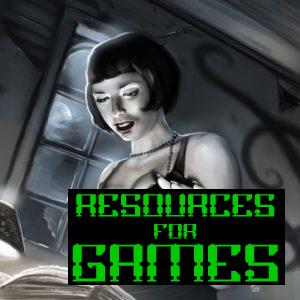
In conclusion, the Game Handbook allows characters to use spells, but it's clear that the real purpose of the Magic chapter is to give plot cues to the players and the Master. An antagonist who intends to perform a ritual described in the Game Handbook will set so many situations in motion that they would create enough storylines to occupy an entire game session. Even if a character wants to make an attempt to perform a Summoning ritual, the side effects could be interesting enough to disrupt the Campaign and create new narrative strands.
The Dream Realms
Lovecraft has set some of his stories in the mysterious Realms of Dream.
May the merciful gods, if they exist, protect us in the hours when neither the power of the will nor the drugs invented by men can keep us away from the abyss of sleep. Death is compassionate because there is no return from it, but he who emerges, pale and full of memories, from the recesses of the night, will no longer have peace. What an imbecile I have been to undertake with such recklessness the study of mysteries which man should not know at all! (from Hypnos, 1922)
In the story "The dreamlike quest of the unknown Kadath", which is the most representative of what will later be called the Oneiric Cycle, Lovecraft tells the story of Randolph Carter who discovers a parallel reality that can only be reached through dreams. The protagonist of the story makes numerous attempts to remain vigilant when he falls asleep and manage to alter the reality of dreams. He also uses medication and manages to gain full control of his will while he is dreaming. This allows him to explore the world of dreams and he ends up discovering that there is a real world, a land where the laws of physics and the limitations of logic are non-existent.
The Realm of Dream has its own precise geography with mountains, rivers and cities. In Cthulhu's Recall Game Manual the Realm of Dream is described in detail, offering a kind of secondary setting in which to place the adventures. It describes how to get in and out of this parallel dimension and what characters can find there.
There are civilizations that inhabit the Realms of Dream, with their culture and history.
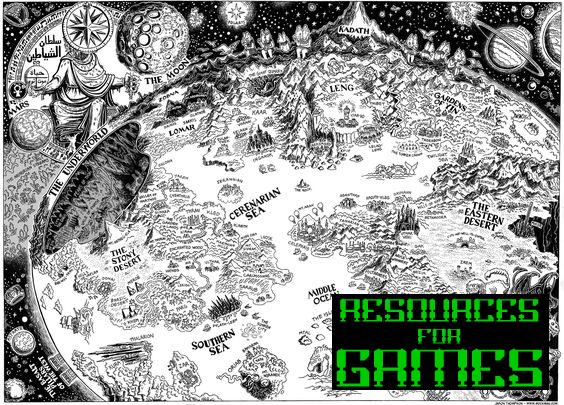
Great Ancients and Outsiders have a strong influence on the Realm of Dream and it is easier for travelers to come into contact with them, with all that follows.
The fundamental concept of Cthulhu's Recall is also present in the adventures set in the Realm of Dreams. By exploring these locations, characters can gain forbidden knowledge and disconcerting information that undermines their Mental Health but broadens their awareness and reveals shocking mysteries.
The Realm of Dream offers many opportunities to the characters but Mental Health is not spared during the dream journeys. This makes the Dream Realms an interesting but extremely dangerous place.
Setting an adventure in the Dream Realms can be a good diversion for a Master who is running a long Campaign, but it should be an interlude in the general plot and the characters should stay there for short periods of time.
The Cthulhu Recall
Cue -> a disturbing cult of crazy worshippers sows terror among the unsuspecting population. Bizarre events seem to be related to the cult, it is difficult to rationally explain what is happening. In a crescendo of investigation and twists, the characters finally manage to stop the cultists before they succeed in performing their rituals and awaken the Great Old One, thus averting the Apocalypse on earth.
The Mask of Innsmouth
Cue -> the inhabitants of a remote town where the characters end up in some emotional way hiding a terrible secret. Investigating the streets of the village, questioning bizarre individuals and encountering terrifying situations, the characters discover that all the locals have made an unmentionable pact with terrifying creatures that dwell underground (or in the depths of the lake or similar). How will the villagers take it when they realize that the characters are revealing their secret?
The Dunwich Horror
Cue -> a strange individual asks the characters to consult some books they keep. The characters realize that the tomes in question are about horrible creatures from parallel worlds. They put themselves on the individual's trail and follow a trail of horrors perpetrated by him in order to carry out his blasphemous ritual. In the final confrontation with the mad adversary, the characters realize that the ritual is complete and they will also have to face the horrendous monster that has been summoned.
Of course, all Lovecraft's works suggest plots and many others can be found in all Gothic and horror literature, which includes countless authors of all ages.
Also in other media it is possible to find cues for the adventures of Cthulhu's Recall. In music, for example, several bands have been inspired by the works of Lovecraft and from the lyrics of their songs you can get cues or at least, listening to them, it is easy to enter the mood of Cthulhu's Call.
and many others.
Game Tips
Lovecraft's works have also influenced cinema and several films take up the themes he narrates in his novels and short stories. Emblematic and the 2001 film "Dagon - The Mutation of Evil" inspired precisely by the story "The Mask of Innsmouth".
Absolutely not to miss the TV series Stranger Things, strongly evocative of the mood of Lovecraft's works.
Also several video games have elements that recall Lovecraft's philosophy and universe; among them there are Alone in the Dark, : Call of Cthulhu Dark Corners of the Earth, Bloodborne, Silent Hill and many others.
Structure of Adventures
The plots of Cthulhu's Call must have an onion-like narrative structure.
1) First Layer: in this first phase the characters should face, initially, a problematic situation but which does not present any supernatural element.
Only after the characters have explored this first layer, must the Master insert an element that pushes them to a deeper level. A trigger, a switch that turns on a light bulb in players' curiosity that pushes them to go deeper.
2) Second layer: here we already find supernatural elements that are difficult to explain rationally but these are not preponderant. Let's remember that the newly created characters are ordinary people who, with few exceptions, are convinced that there is nothing that human reason cannot explain and understand. When, therefore, they will find themselves exploring this second layer, they will have to come into contact with situations in which the presence of the supernatural remains smoky, dubious and ambiguous. There is something strange but can still be explained, perhaps it is only a hallucination or a suggestion.
Also in this phase the Master has to set another trigger that takes players to the heart of the onion, the core of the adventure.
3) Third Stratum: When the characters appear at this level they are confronted with all the worst they could have ever imagined. The supernatural is undeniably present, the characters must face the reality that monsters exist, that Outsiders and Great Ancients dominate unchallenged over a humanity destined to destruction and come across horrible creatures in front of which they can do nothing but go mad, succumb or, at best, escape.
SPUNTO: the archaeological expedition
First Layer -> the plot revolves around an important discovery in a remote place (Egypt, Antarctica, South America, etc...). Some worrying events require the presence of the characters (protection of the place, peculiar academic skills, journalistic interest, etc...).
Second layer -> the exploration of the archaeological site reveals disturbing details (incomprehensible inscriptions, architecture inconsistent with the place and the historical period, traces of unknown beings, etc.). As the exploration continues, the characters will find increasingly disturbing clues that will eventually undermine their scientific certainties.
Trigger -> the solution of a riddle allows the opening of a sealed room, a creature escapes from the excavations and kills some extras before disappearing, an old man who lives in those places tells a disturbing story, etc...
Third Layer -> the creature that rested in these places, disturbed by the excavations and explorations of the characters, awakens. There were already alarm bells but the characters preferred to indulge their curiosity (the marauders are nothing but a cult that for millennia protects those places to prevent the awakening of the creature, the writings and bas-reliefs that the characters find warn visitors of the hidden horror, the ancient stories and legends are more real than you imagine, etc. ...).
Trigger -> finally the characters find the key to the last room or capture the leader of the marauders who tells them the whole story, or complete the ritual that should have increased their knowledge but turns out to be a deception of the Great Ancient who finally manages to free himself, etc. ...
SPUNTO: the streets of Arkham
Primo Strato -> the plot is linked to the fight between the criminal organizations and the police in the slums of the city. The characters are linked to one of the two sides and may find themselves caught up in a story of smuggling and fencing something very precious that comes from far away countries. A surrogate for opium or alcohol that breaks Prohibition and makes the underworld's bosses want it? A find stolen from some museum in Europe for which bored collectors are willing to spend any amount of money? Or maybe a beast captured in the darkest jungle that scholars have not yet catalogued but that would make the fortune of zoos and circuses? The plot in the first layer unfolds like that of a classic gangster movie (Quei Bravi Ragazzi, Scarface, Carlito's Way, etc.).
Second layer -> what interests the city's criminals and, consequently, the police, is not something common. Continuing the investigation, the characters realize that strange happenings happen to those who have to deal with the object or substance in question.
Trigger -> corpses of people killed in horrible and incomprehensible ways are found, some policemen have gone mad after investigating or newspapers report reports of sightings of monstrous creatures in places connected to the plot, etc...
Third Layer -> it turns out that a blasphemous sect has concocted a plan to get the smuggled object (the substance, the find, the exotic creature, etc. ...) into the city undercover. When he takes possession of it, he performs the ritual that will awaken the horrors dormant in the abyss.
Trigger -> In confrontation with the cultists the characters realize that they have horrible creatures at their service, in front of their eyes the ritual takes place and unspeakable visions present themselves to them or the grand master of the sect reveals himself for what he is: an alien being, etc. ...
SPUNTO: the haunted house
First Strato -> for some reason the characters have to visit an abandoned house around which legends and disturbing stories circulate. They will have to spend at least one night there and in the meantime the characters will browse around exploring all the meanders of the mansion.
Maybe the house is not abandoned but the guest of the characters is a bizarre, mysterious and a bit disturbing.
Second layer -> terrible things happen in that mansion. Nothing that poses an immediate danger to the characters but events that make them realize they are not safe.
Trigger -> The servants or other people who were inside with the characters are found killed in a splattered way, sudden changes in the house upset the characters, like walls on which cracks appear or paintings that change in appearance or noises, traces and clues suggest that a dangerous creature is hidden in the house somewhere.
Third Layer -> the thing that attracted the characters to the place is revealed and from them the hunt without hesitation. The building has now become a death trap.
Trigger -> the characters find the will of the sorcerer who lived in that house and realize that they are the last victims to complete a ritual that has been an act for decades, the characters find the key to the basement (or attic) in which there are the remains of the spirit that is causing all this or the house reveals itself for what it is: a single, huge living creature and from the walls will expel tentacles while mouths will open on the floor, etc. ...
Managing a Campaign
As mentioned earlier, the adventures of Cthulhu's Recall have the particular characteristic that the characters with great difficulty manage to get to the end alive and, even if they survive, there is still a high risk that they will go irreparably crazy.
Letters and diaries are the solution that has always been the most recommended. Players can inform the Master that their characters are keeping a diary or a close correspondence with a friend or relative. If then players, at the end of each session, would like to spend some time actually writing diary pages it would be ideal.
When a character dies, the player can create a new one by imagining that it is the recipient of the letters of his first PG or that, alternatively, this new character has come into possession of the first character's diary and is willing to continue the investigation.
So how is it possible to maintain continuity between adventures?
How to connect the various adventures: here are some ideas:
The Antagonist
A particularly powerful individual (because he has access to superior knowledge, because he has influence in the military, criminal, political or other fields, because he is crazy and has nothing to lose, neither scruples nor moral values that limit him, etc.) is the bad ending of the first adventure of the Campaign.
The characters stop his plans but fail to capture him, so in subsequent adventures he will make new attempts to achieve his goals which, of course, require the evocation of blasphemous gods to whom he is willing to offer the salvation of the planet in exchange for unlimited power.
The Cult
A branched and influential sect has as its ultimate goal the awakening of a creature that could destroy the world. The characters foil the cultists' plans and maybe destroy a hidden cell, but they realize that the sect is much more branched than they thought.
The divine will
The Master chooses one of the most powerful creatures described in the Cthulhu's Recall Game Manual, the one who has an intelligence superior to the others (Nyarlathotep, for example, or the Yith civilization that dominates human minds from the future or a sleeper Cthulhu who nevertheless manages to communicate through dreams and manipulate weak minds to perform actions aimed at his awakening).
The characters find themselves entangled in situations apparently disconnected from each other but with time they realize that all that happens is nothing more than the machination of this deity who aims to manifest himself in the world to dominate it.
The Characters
It often happens that players create their own character following a personal inspiration without consulting other players.
What's a Professor of Anthropology doing with a cop, a doctor and a missionary? What could possibly be the reason why they all decide to investigate together?
It can happen, therefore, that the group of characters is extremely heterogeneous and the Master has difficulty in finding a reason for them to stay together.
Usually, after escaping the first situation, the characters share a common destiny, knowledge that they share and have discovered things that make them special and, for this reason, they are motivated to meet again and continue their investigations together even if they are all different people.
There are basically three solutions:
- In the first adventure of the campaign the Master decides that ordinary people randomly chosen find themselves caught up in the same situation.
For example, cultists kidnap passers-by on the street and the characters wake up tied up in the same basement.
- the Master exploits ties between pairs of characters, which by introducing their friends to each other make it possible to create the group.
For example, the Policeman is the cousin of the Professor of Parapsychology, they have a case to solve together and the first one presents his informer (the Gangster's character) while the second one makes everyone know the Tramp, a guinea pig for his experiment whose skills can be useful to the situation they have to face. Here's what a Policeman, a Gangster, a Professor and a Tramp are doing together.
- the first two hypotheses are cumbersome and often the situations created to explain the presence of such heterogeneous characters are forced and not very credible.
Not always an initial motivation based on kinship, old friendships or chance encounters are a strong enough glue to ensure that staying together in subsequent adventures of the campaign is a consistent and plausible choice. In real life, people like this tend to resolve the imminent issue that they are forced to work together on and then everyone in their own home.
One way to make the collaboration between the characters lasting and narratively acceptable is to create ad hoc groups.
Cthulhu's Recall is basically a game of investigation and the heart of the plot is the investigation, research, discovery. The characters are ephemeral, they die easily and go mad even more easily. Although, as in any role-playing game, storytelling and interpretation are the basis, in Cthulhu's Recall it's not such a shame to adapt the character to the plot rather than do the opposite (as should be done in all role-playing games).
The Master asks players to agree and form a group that already has a strong motivation to act together when creating the characters, in which the characters already know each other and already have a modus operandi in a group structured from the point of view of hierarchy and distribution of roles.
Although this solution may seem forced and it could be objected that players' freedom to create the character as they wish is limited, it does allow them to get into the plot of the first adventures without wasting time and get straight into action.
Below are a few cues for creating a group of characters whose twisting together is justified, plausible and consistent.
The ACCADEMIC group
The group revolves around one or two characters who choose scholars. In the Game Manual are listed many professions of this type the protagonists of the May part of Lovecraft's tales are professors, occultists and bookworms in general.
The plots will start, indicatively, on the basis of research involving these scholars while the other players will choose characters to support the expeditions organized by them.
For example, in the group there could be: a Professor with a specialization in archaeology, a Parapsychologist, his assistant; a Doctor in charge of first aid in the expedition; an Officer for military support and an Engineer in charge of archaeological excavations. An excellent group for an "archaeological expedition" adventure.
The REPORTER Group
The group revolves around one or two characters who are in charge of a journalistic inchesta. The newspaper they work for has hired the other characters to protect and support them.
For example, we will have a Journalist and a Writer who have always worked together; the Lawyer who is a consultant for legal matters and is ready to get them out of trouble if they step on someone's toes; the Police Officer who is hired as a bodyguard and an Amateur all-rounder who is a driver, knows where to find what you need and knows how to open closed doors or climb over fences too high.
The DETECTIVE group
The group is formed around one or two characters who have been hired to investigate a mysterious and fascinating case. The other characters have often collaborated with the investigators and respond to a request for help from them to solve this new case.
For example, we will have one or two Private Investigators, owners of a study who receive the task that is the beginning of the adventure; in the past they have framed a Criminal but have given up denouncing him in exchange for his help when it would have served him; a Police Inspector is a close friend of theirs, together they have solved several cases in the past with gain of all; a Tramp has always been their eyes and ears on what goes on in the street and no one like him knows how to make himself invisible and gather information everywhere, he will be needed for this investigation which is already particularly bizarre and difficult.
Atmosphere
The Game Manual provides several tips to create the right atmosphere during game sessions, although these are quite common gimmicks that any Master with a minimum of experience has been using for a long time: maps and symbols, background music and so on.
As the Manual itself states, nothing creates the right atmosphere better than good game play. Here are some tips.
Fear of the unknown
In a role-playing game like Cthulhu's Call of Cthulhu the core of it all is mystery, the unknowable, what the human mind cannot conceive.
Stephen King wrote: "That's what's great about Lovecraft; it always seems to say, "I have this horrible thing on my hands but I can't describe it to you if I describe it to you.





